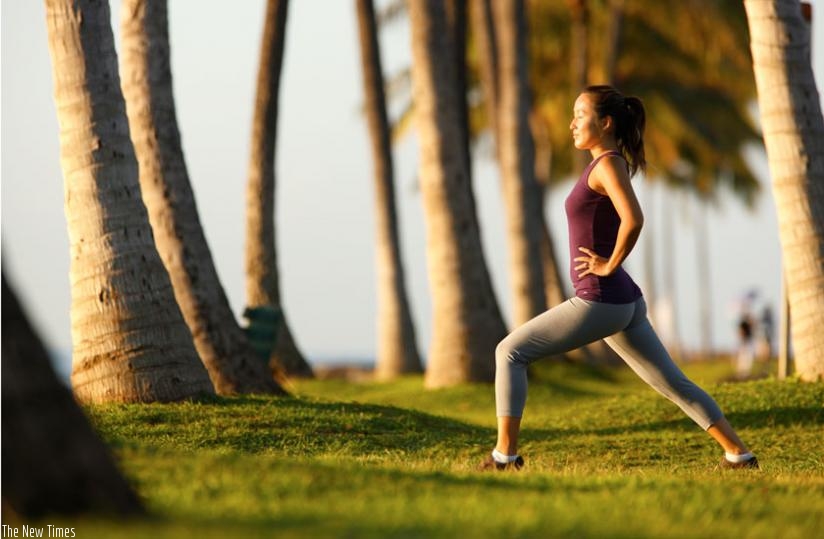After giving birth to her second child three months ago, Anitha Irahoza started experiencing lower back pain. Unlike her first delivery, the discomfort for the 28-year-old mother grew from mild to excruciating every other day.


After giving birth to her second child three months ago, Anitha Irahoza started experiencing lower back pain.
Unlike her first delivery, the discomfort for the 28-year-old mother grew from mild to excruciating every other day.
"I couldn’t bend or pick something from the floor. It was different from my first birth where mild pain only lasted a week. This time I got worried and ran back to the hospital for medical attention,” she explains.
Many share Irahoza’s dilemma of experiencing back pain after birth and Dr Iba Mayele, an obstetrician at Doctors Plaza in Kimironko explains it is partly because of poor posture during pregnancy.
However, Dr Mayele explains, that mild back pain after delivery should not last more than two weeks.
"The pain should not exceed two weeks. In case it happens, there is a possibility that another problem occurred,” he explains.
The trained gynecologist further elaborates that infections inherent in pregnant women can cause back pain in the mother after birth. Treating such infections requires certain tests to identify the root cause.
"For such cases, it’s always good to examine the patient and find outpossible causes for the infection. Thereafter medication can be given to the mother,” Dr Mayele adds.
Dr Rachna Pande attributes common back pain to occupational posture during the nine months of pregnancy.
"Most times pregnant women spend a lot of time working while sitting on uncomfortable chairs which in the end affects their back,” says, Dr Pande
Just like Dr Mayele, she emphasizes that Pelvic infections, tuberculosis and urinary tract infections are common risk factors for back pain in mothers.
"Pain in the back could result from infections, but in young men and women, the reason could be urinary tract and pelvic infections, muscle pull, disc herniation or infections of backbone like T.B,” says Dr Pande.
However, Dr John Muganda, an obstetrician at Polyclinique La Medicale points out that back pain in pregnant women mainly results from the excess weight of the baby.
"During pregnancy, the weight of the baby causes deformation of the back bone which may lead to pain,” says Dr Muganda.
He adds that contractions of the uterus during birth leads to back pain and Ceaserian section are some of the unavoidable risks.
"During birth the uterus contracts while other women prefer C-section which is associated with back pain,” he adds.
Dr Pande, further observes that soft mattresses aggravate problems because they can flex both inwards and sideways causing the back to bend.
"These mattresses are flexible, when you sleep in the middle, they fall in and sideways they bend which may give you a lot of discomfort during the night. Overtime, this develops into serious back pain”
Remedies for the pain
The World Health Organization (WHO), acknowledges that back pain is a global health problem and a major cause of disability in children and adults.
Several studies have found out that women in reproductive age experience back pain during menstruation because their demand for calcium increases during puberty.
Worse still, there is strong evidence suggesting that women of old age experience intensified calcium depletion as a result of osteoporosis.
Dr Muganda, complements these views warning that low levels of calcium in the body can aggravate back problems if associated with infections. He suggests that appropriate physiotherapy should be taken to speed up the healing processes.
"People who experience back pain due to heavy manual work or office worker have no other remedy apart from visiting a physiotherapist twice a week. These will work on the muscles and twisted joints to speed up the healing process and reduce pain as well,” he explains.
Dr Pande echoes, Dr Muganda’s views advising that before people find comfort in painkillers, physiotherapy should be administered as early as possible.
"Pain killers relieve pain but they are not the ultimate solution. A combination of remedies alongside physiotherapy can cure back pain”
Nutritionally, Dr Mayele advises that calcium supplementation and nutritious foods like broccoli, spinach are necessary in overcoming back problems.
Because back pain is highly associated with underlying infections and poor posture medics advise that physical exercises should be done on a regular basis and infections like tuberculosis treated immediately to avoid the risk of neurological complications.


